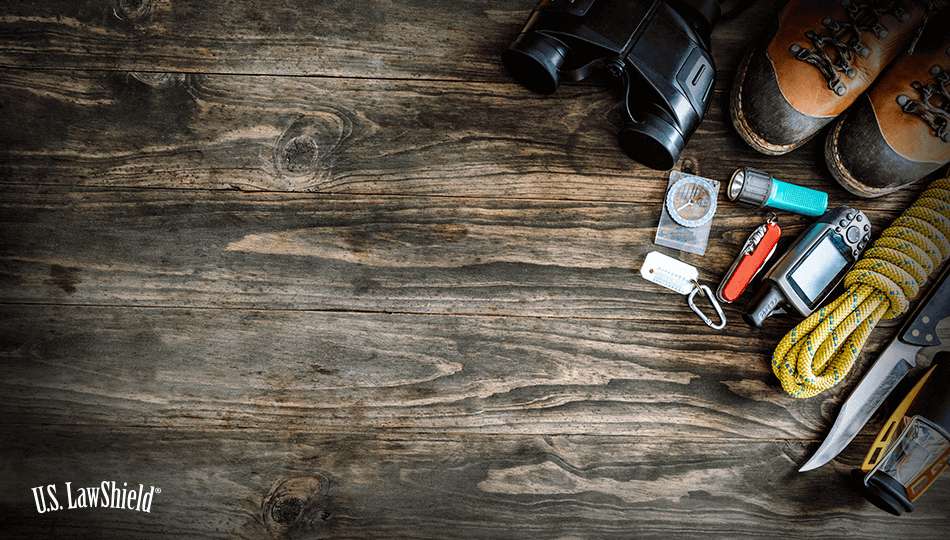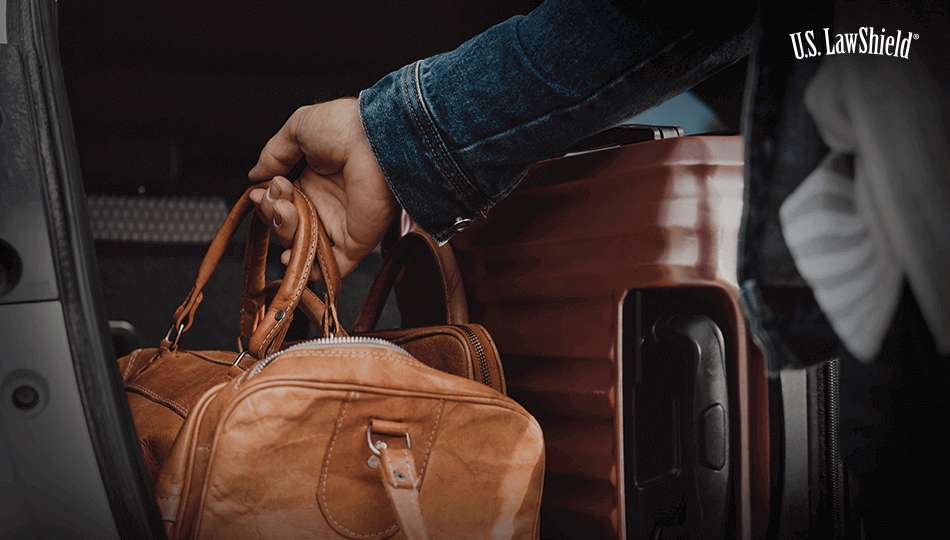
The time for holiday shopping and family get-together preparations is about to reach its summit. People are rushing to and from their vehicles with hardly a second glance at their surroundings. One distracted moment is all a criminal needs to get into your vehicle to steal your belongings, or worse, make you the victim of an assault or robbery. Situational awareness is key: be mindful of your surroundings, gravitate toward lit areas in parking lots, scan the area for any possible threat, and have a plan in mind for retreat or cover. But what happens when a law-abiding gun owner finds themselves in the sights of a criminal?
During the holiday season, many holiday shoppers are caught unaware by larceny or robbery of their vehicles. It is critical that you, as a law-abiding gun owner, understand what legal response is allowable and justified for each of these criminal actions before you find yourself in the middle of one of these terrifying incidents.
Understanding When Use of Force is Justified
Especially if you carry a handgun, knowing the law on the justified use of force and deadly force to prevent a crime will help you develop a plan before an incident takes place. Robbery and larceny are all too common around the holidays. We don’t want you to become a victim, so let’s address each of these.
Larceny
Let’s imagine that you’re walking out of a store after shopping for presents. It’s late, but the parking lot is still pretty full of last-minute holiday shoppers. You push your cart across the lot while practicing situational awareness. The cart is just loaded with bags of presents you’ve bought for your family and friends. Upon reaching your car, you let go of the cart and begin searching for your keys. Just then, a person appears out of nowhere, grabs a few of the bags from the cart, and starts running away. This is known as “theft” or “larceny.”
Theft, called “larceny” in Virginia, is defined as the “wrongful or fraudulent taking of personal goods of some intrinsic value, belonging to another, without his assent, and with the intention to deprive the owner thereof permanently.” Foster v. Commonwealth, 606 S.E.2d 518, Va. App. (2004) citing Dunlavey v. Commonwealth, 35 S.E.2d 763, Va. (1945). Larceny alone, with no other aggravating factors, does not justify the use of deadly force.
Larceny is split by statute into “Grand Larceny” or “Petit Larceny” based on the value and type of items stolen. At common law, larceny is also split into “simple larceny” and “compound larceny,” based on whether the items stolen are taken from the home or person of another, or whether the items are stolen from some other location. The safest legal response to a larceny crime in Virginia is to simply contact the police.
Robbery
Let’s change our earlier scenario. This time, the parking lot is pretty empty, save for a cluster of cars where you’re parked. As you reach your car and begin searching for your keys, a masked man appears from behind the car. He tells you quietly that you can either let him walk away with the shopping cart, or he’ll kill you. Virginia law defines this as “robbery.” Robbery occurs when a perpetrator commits the “taking, with intent to steal, of the personal property of another, from his person or in his presence, against his will, by violence or intimidation.” Johnson v. Commonwealth, 163 S.E.2d 570, Va. (1968).
Robbery is a felony offense when it is effectuated “by partial strangulation, or suffocation, or by striking or beating, or by other violence to the person, or by assault or otherwise putting a person in fear of serious bodily harm, or by the threat or presenting of firearms, or other deadly weapon or instrumentality whatsoever.” (Va. Code § 18.2-58).
As you can see, robbery, as opposed to simple larceny, does create a risk of great bodily harm or death. While Virginia never allows the use of deadly force (or even brandishing a weapon for that matter) solely in defense of property, the situation changes dramatically when a robbery occurs. While Virginia does not specifically authorize deadly force in response to a robbery by statute, deadly force may be justified if the person committing the robbery is placing you in imminent fear of death or great bodily harm, and you reasonably believe you cannot stop the attack using a lesser amount of force. See Virginia Model Jury Instruction No. 33-800.
Larceny of a vehicle is another crime that is common in parking lots around the holidays. Larceny of a vehicle occurs when a perpetrator breaks into a vehicle with the intent to steal items from the vehicle, or to steal the vehicle itself. (Va. Code § 18.2-95; Va. Code § 18.2-96) Because the things in your vehicle and your vehicle itself are merely considered property, deadly force is not justified to stop this type of threat. However, if you are inside the vehicle when such a break-in attempt or carjacking occurs, you may be justified in using deadly force if you reasonably fear imminent death or great bodily harm as a result of the carjacking attempt. See Virginia Model Jury Instruction No. 33-800.
Armed with situational awareness and an understanding of the self-defense laws in Virginia, you can protect yourself from the criminal element and keep yourself on the right side of the law this holiday season.
For any further questions regarding self-defense over the holiday season, call U.S. LawShield and ask to speak to your Independent Program Attorney.
The preceding should not be construed as legal advice nor the creation of an attorney-client relationship. This is not an endorsement or solicitation for any service. Your situation may be different, so please contact your attorney regarding your specific circumstances. Because the laws, judges, juries, and prosecutors vary from location to location, similar or even identical facts and circumstances to those described in this presentation may result in significantly different legal outcomes. This presentation is by no means a guarantee or promise of any particular legal outcome, positive, negative, or otherwise.




Leave A Comment